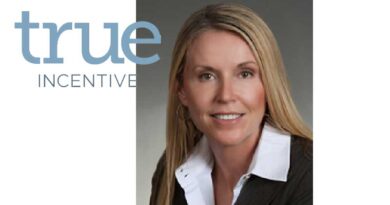The World of Finance Seven Months into a Pandemic
The first question a business owner usually hears these days is “How is your company doing? Are you OK?” The answer usually depends on the business they’re in. In the timeshare industry, if you’re in the tour generation business in an impacted area, you’re probably struggling. If you’re running a timeshare transfer business, you might be doing very well.
In the timeshare finance world, things are going about as well as we could expect. Sometimes it’s hard to tell exactly how we’re doing as a group. We don’t see much of each other and therefore our knowledge is incomplete and, further, we’ve never been in a situation like this before. And if it’s hard to tell where we are, it’s even harder to know where we’re going; this is not an easy article to write. The situation may be very different by the time you read this, for the future is almost as cloudy now as when the global pandemic first took hold in March. Anyone who confidently predicts the events of the next several months is either a billionaire or a charlatan—or one about to become the other.
From March until now, perhaps the most surprising and encouraging thing we’ve seen at Colebrook is the sterling manner in which our consumer loan portfolios have performed. We worried about delinquencies and defaults and permitted our developers to offer payment deferrals to customers impacted by COVID. What we thought might be a fairly large number of deferrals never exceeded 2% of the portfolio. Despite rising unemployment, delinquencies remained stable and no developer slid into a deficit collateral position. Timeshare owners are more affluent than the typical consumer and more likely to be able to work from home and maintain their income levels. Further, the government stimulus programs have allowed those who’ve lost their jobs or have lower income to continue to make payments on their obligations. Some have received relief from rent or mortgage obligations, which helps their overall financial situation.
The COVID recession is different from past downturns in that the banking industry was healthy prior to March, and therefore better positioned than during crises precipitated by over-speculation and systemic weakness. Credit is still available, although terms may be a bit more conservative. This is not like the 2008 crisis, when credit nearly vanished overnight.
PPP loans have allowed most large developers to retain essential staff and although many employees are working remotely, operations—for the most part—are functioning smoothly. After a brief hiatus, we’re funding receivable packages again. Most sales operations have re-opened, other than those located in high-risk areas. Drive-to resorts have bounced back much faster than those in destination areas such as Orlando and Las Vegas, and sales levels are surprisingly robust. Until there is a lasting solution to the COVID crisis, destination resorts will likely find it difficult to approach prior levels of activity, and when the situation normalizes, it will be interesting to see if there is a permanent preference for rural drive-to resorts.
For us, one of the most difficult aspects of today’s world is the limited ability to meet face-to-face with customers and bankers. Virtual contact permits us to convey information but doesn’t provide the prolonged, casual interaction that allows new ideas to percolate slowly and gives us time to learn more about what makes each other tick. Today’s communication is mostly planned, scripted, and efficient. We are based in Connecticut, which enacted travel bans for most states, including those where we do the bulk of our business. Florida, the long-established timeshare mecca, has been a hot spot and the prospect of a two-week quarantine has kept us office-bound since February.
That doesn’t mean we’re not seeing new opportunities and closing deals. We are, in fact, closing quite a few loans and have others in process. Developers of club product are in demand, for there is a lot of available inventory. Rentals are down and the owners of resort condominiums are looking for ways to put guests in their units. Clubs are a good way to do that and they should have no difficulty finding inventory.
We’re also seeing a fair number of re-positioning projects. For many legacy resorts, the pandemic has provided the final piece of evidence that they either need to find another use for their properties or at least downsize to a level where maintenance fees from existing owners cover expenses. Many associations have been surviving on rental income, which has been severely curtailed during the pandemic. The market for whole units is strong throughout most of the country and this may be the time to convert unsold timeshare inventory to whole units.
Now for the difficult part. What’s ahead? If a vaccine or cure arises within the next few months and we can once again socialize freely, we are back to our old ways. If a permanent fix does not arrive soon, we will likely see a migration of legacy resorts to other uses and large developers scrambling to find ways to sell more timeshare inventory in a restricted world. Branded developers have committed to sell significant amounts of inventory under “fee for service” arrangements, commitments that have been very difficult to fulfill. The backlog is growing.
Current sales levels are encouraging, but their sustainability will depend upon the depth of the market. There are risk-takers willing to travel in perilous times, but are there enough of them? Selling isn’t easy, since tours are harder to come by and the sales process has been impacted by social distancing, which makes podium presentations difficult and limits the number of tours that can be processed per sales wave.
Once things return to “normalcy” they will probably be a little different. Most companies have downsized and adapted and realize they can do the same with less and with employees who work from home. Staffing may be leaner, some people will not be called back, and some companies will probably reduce their back-office workspaces while making more use of technology.
The key to Colebrook’s success is the fate of our portfolios. If they continue to perform in the manner they have thus far, we will be successful, even at much lower volume levels. If defaults escalate, that will place more pressure on us and our developers, who at this point can’t afford another obstacle.
Let’s hope a resolution occurs sooner rather than later, but that’s beyond our control. We’ve come a long way since March—our office is almost fully staffed and we’re available and able to service our clients. If early 2021 is a lot like 2020, we will soldier on.
Bill Ryczek and Mark Raunikar are founding partners of Colebrook Financial Company and have been lending to the timeshare industry since 1979 and 1988, respectively. They have worked together since 1988.



